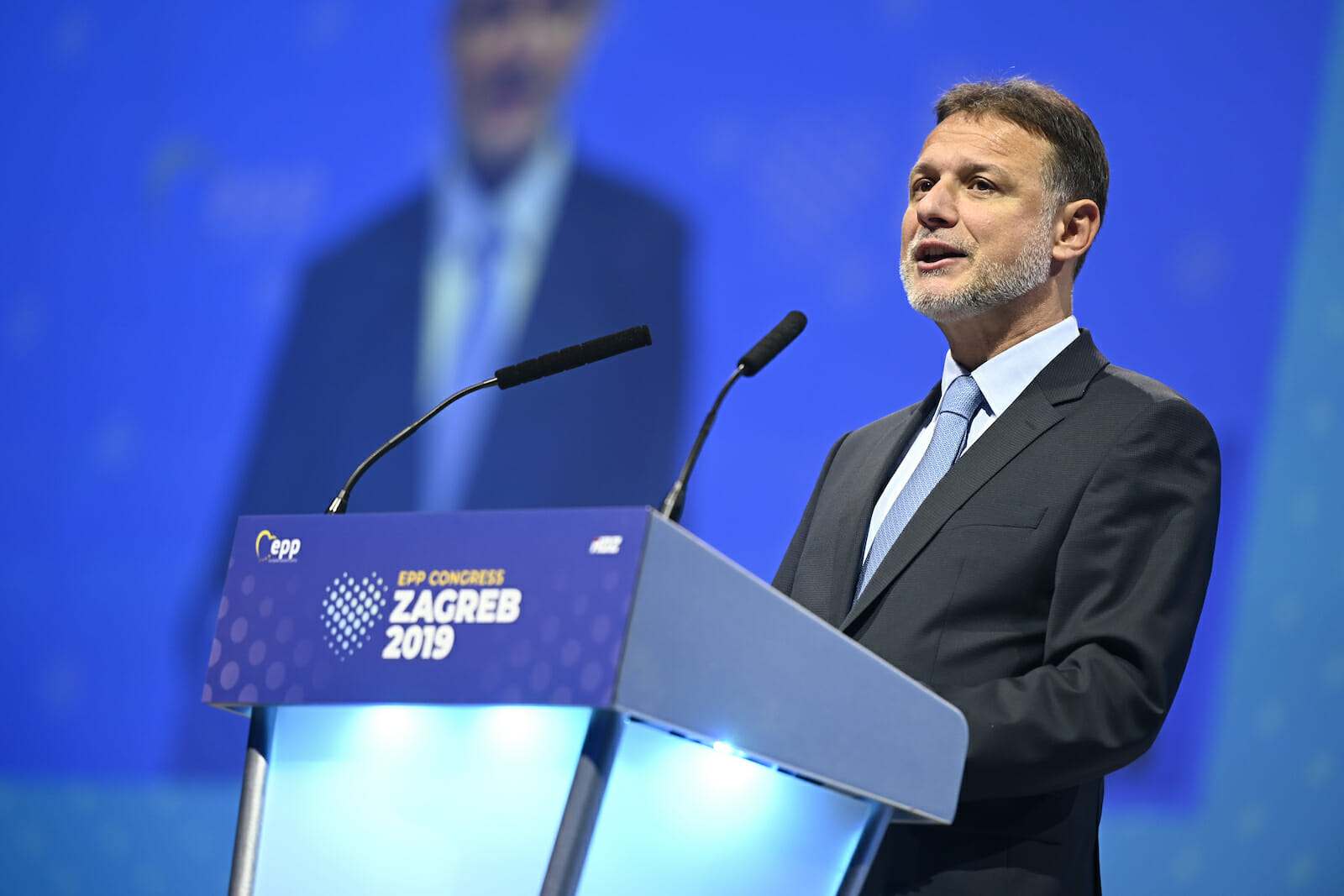
Croatian Elections Again Overshadowed by Scandal
Controversy is swirling as Croatia prepares to go to the polls on July 5th. Anti-abortion comments made during a live television debate have provoked a furious backlash among women and pro-choice advocates, amid allegations that the Church is interfering in the electoral process. Meanwhile, there’s been a worrying uptick in anti-Serb hate speech, fueling ethnic tensions.
Unfortunately, such distasteful incidents are par for the course when it comes to Croatian politics. Virtually every election since the former Yugoslav country gained independence in 1991 has been marred by corruption and controversy, with the most recent incarnations no exception. Despite its accession to the EU, Croatia is still mired in a miasma of its own inner machinations. Unless whoever triumphs this Sunday can effect genuine change in its political, economic, and judiciary systems, Croatia’s future ballots will continue to be determined by the scandale du jour rather than the important issues facing the country.
Bigotry and intolerance
With polling day fast approaching, a TV debate caused a furor in Croatia when Gordan Jandroković (of the incumbent HDZ party) and Miroslav Škoro (of the far-right Homeland Movement party) put aside their political differences to agree that abortion should be discouraged in all circumstances, including rape. Their remarks followed those made by independent candidate Nino Raspudić, who argued that the children of those raped during the Bosnian War of 1992-95 have nevertheless “managed to realize themselves as happy people.”
The rhetoric has drawn sharp criticism and a stinging response from prominent activists and political figures across Croatia. Hundreds of women immediately took to social media to show their displeasure via photographs of them giving the middle finger, with ex-President Kolinda Grabar-Kitarović and deputy mayor of Osijek Žana Gamoš leading the charge. The conservative views expressed by the politicians do not seem to reflect those of Croatian society, either, with 81% of those surveyed saying they believed in a woman’s right to choose. Meanwhile, critics have identified the fingerprints of the Church on the subject and have warned that politics must remain secular.
The anti-abortion affair is, unfortunately, not the only scandal tarnishing the upcoming elections, either. A spate of xenophobic incidents, including an obscene, anti-Serb banner held by football hooligans and a worrying increase in reports of police brutality towards asylum seekers, means that ethnic issues are threatening to overrun the electoral campaign. The Serb question is a particularly thorny one for current Prime Minister Andrej Plenković, who must tread a careful line in his condemnatory remarks of the incidents for fear of losing his slim majority to far-right populism. Although ethnic Serbs represent a mere 4% of the population and hold just three of the parliament’s 151 seats, their struggles could yet play a pivotal role in Sunday’s contest.
History repeated
Sadly, such polemics are nothing new for Croatian politics. Lagging in the polls ahead of the 2015 parliamentary elections, the then-ruling Social Democrats (SDP) pushed through a law which forced domestic banks to convert loans that had previously been taken out in Swiss francs (CHF) into euros. The move, which the following government called “populist,” saddled Croatia’s banks, most of whom are subsidiaries of financial institutions in other EU countries, with a €1 billion bill.
The European Commission warned Zagreb that the law disproportionately hurt local lenders, the European Central Bank took aim at the fact that the law was applied with retroactive effect, and the IMF advised that such measures should be avoided as they adversely affect investor confidence, but Croatia’s government refused to back down.
The fallout from the episode continues today, as a case makes its way through the Croatian judiciary which could yet again sacrifice Croatia’s financial sector at the altar of populism. If courts rule that all loans initially denominated in CHF are null and void and that borrowers are entitled to compensation, Croatian banks could be on the hook for another €2.6 billion—a difficult sum to swallow as they are trying to build up capital buffers in the face of the coronavirus pandemic.
The snap elections which came the year after the misguided loan conversion were, themselves, tainted by a diplomatic brouhaha over leaked recordings and alleged voter fraud on a widespread scale. Firstly, former Prime Minister (and now president) Zoran Milanović was secretly taped dubbing neighbors Bosnia and Herzegovina “a failed state” and the Serbian government “miserable.” His remarks provoked an international outcry, strained already fraught Serbo-Croatian relations, and made the election a retrospection on festering old wounds rather than an optimistic outlook towards the future.
What’s more, independent research revealed that as many as 300,000 of the names on the 2016 ballot were non-existent voters, casting aspersions over the result of the election. Shockingly, that still represented a significant improvement from the 2011 campaign, when as many as one million –almost 20% of the electorate – were found to be fake. As many as 70 out of Croatia’s 151 parliament seats may have been influenced by the error, throwing a pall over the assembly’s legitimacy.
Decisive action urgently needed
With such an insalubrious track record, it’s unsurprising that this week’s elections look set for a similar fate. With rampant division and populism and Croatia sinking to its lowest corruption rating in five years according to Transparency International, the EU’s youngest member state has a lot of growing up to do.
Whoever emerges triumphant on Sunday, their first and largest charge will be to take to task those within the political system who are resistant to real change. The recent re-conviction of ex-Premier Ivo Sanader is an encouraging sign, but a similarly uncompromising attitude to stamping out corruption wherever it surfaces must be employed across the board. Only once the broken system upon which Croatian politics are built has been pieced back together, can the country begin addressing the internal discord and healing decades-old scars, depriving populists of fodder for their hate campaigns and allowing this Balkan nation to achieve its full potential.

